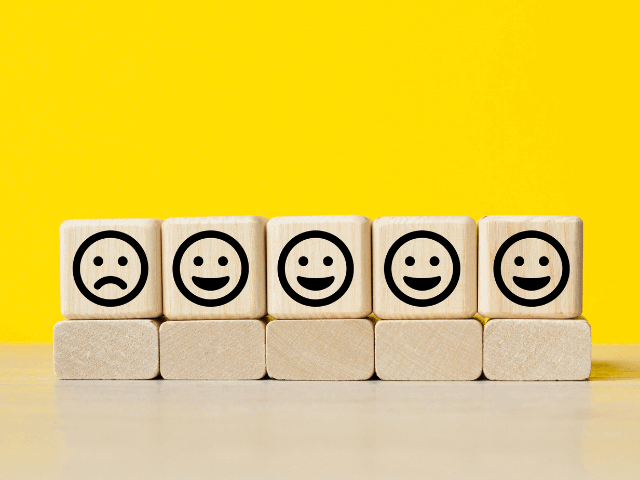
Taylor was a great kid. She was active, loved school and also helped with chores at home. Suddenly, after summer vacation, there was a dramatic shift in her personality. She could not focus on things and was constantly feeling tired. She started withdrawing from activities.
Her parents thought that she was trying to dodge a disciplined life. They started enforcing more rules on her at home. At school, her performance dropped. The teachers observed her change in behavior and decided to talk to her parents. Her parents wanted to get her back on track and reminded her of everything that she had in her life and told her she should be happy. They tried instilling the concept of gratitude in her. But her situation worsened.
What was the reason her caring parents and concerned teachers were not able to help Taylor? They were focusing too much on the positive emotions and feelings that “should” be there and ignoring or diminishing the negative thoughts and feelings that were there.
We all struggle with finding the right balance of acknowledging and processing emotions in daily life with brushing them aside and putting on a brave and happy face. And sometimes they build up and render us less present, less engaged and even at risk.
Emotional Intelligence (EQ) is highly valued in our world as it fosters our ability to understand and manage our emotions. But sometimes, we mix it up with extreme positivity, which is not how EQ works. When we manage our emotions effectively and honestly, we consider both the positive and negative attributes of our emotions in an unbiased mix.
What if Taylor was told that it was okay to be slack and not be perfect at school or at home all the time? What if someone had told her that it is okay to feel low and sad and get into a rut once in a while? It may have opened up other conversations and her response might have been different.
One risk of the messaging we get through EQ programs is we end up taking on a mindset that is based in toxic positivity – we start to work on being so positive that we aren’t even able to see what is going on inside of us; or, in this case, right in front of us with a loved one. If Taylor had been given access to the full spectrum of what EQ programs offer, then maybe she could have recovered faster.
EQ is about acknowledging what you feel and then managing those emotions. It is about letting emotions flow freely by acknowledging and channeling them in the right direction. It is not about inhibiting emotions in a stoic fashion which can inhibit their flow.
Here are a few tips for applying the principles of EQ in a healthy and balanced way.
| EQ is NOT about: | EQ is about: |
| Performing or pretending to be positive for the sake of appearance or productivity. | Leveraging our emotions to inform how we are responding to ourselves and others in a constructive way. |
| Being constantly in a happy place. | Rebounding to a happy or peaceful place using EQ strategies. |
| Ignoring negative emotions. | Dealing with them constructively. |
| Getting stuck in negative emotions. | Navigating through them to a more positive place. |
So, how could Taylor have been helped?
- By telling her that what she is feeling is okay.
- By acknowledging and respecting her emotions and understanding her perspective.
- By sharing some related experiences or anecdotes about life to make her feel comfortable.
- By seeking to understand how she perceives the situation and the reasons for her changed behavior.
- By encouraging her to engage in activities that help her build confidence.
- By keeping track of her emotional swings and physical reactions to situations.
When we acknowledge and respect the emotions and perspectives of young people, we teach them to trust themselves.
Captains & Poets provides young people with a means of gauging how they are feeling and whether they are doing what they need to do to take care of themselves and/or remedy an aspect of their life. The Poet is the part of us that feels and holds a sense of connection to the important aspects of our lives. The Captain is the part of us that takes charge and helps us move in the direction that is best for us. The first sign of despondency is a Captain who is less engaged and losing interest in activities that were once energizing and meaningful to the Poet.
By giving young people this language, they don’t always have to have the exact words to explain what they are feeling or where they are at. They can simply check in with each of their Captain and Poet to find an entry point to explore and surface what is going on for them and to be active agents in moving through it.
So often we rely on the busyness of life to keep us afloat. Sometimes this works to help us let fleeting emotions pass. But when there are deeper stirrings about our experiences, our identity or our emotional balance we need to give ourselves a break from the pressure of being positive and happy all the time.
Next time you have a bad day, take some time and check in with your Captain and Poet before you keep going. We’ve all been there. And we will all be there again.
Dr. Deeksha Sharma is a two time TEDx speaker, a human behavior and emotion researcher with a Ph.D. in Emotional Intelligence. At present, she is working with Cornell University and developing a new EI model and has recently completed the Cornell postdoctoral leadership program. Dr. Sharma is part of the Cornell Multicultural Academic Counseling mentoring program and is part of WE Cornell, a women’s entrepreneurial club. Her recent initiative is the podcast Student of the World to communicate with students of different countries and understand how they are evolving in the unique times of the pandemic.

Taylor’s story is a familiar one, and all too much common after the pandemic. Students need to reconnect with each other and improve their social skills and EQ. C & P can help so much with this. I hope this program continues to gain traction in schools everywhere.